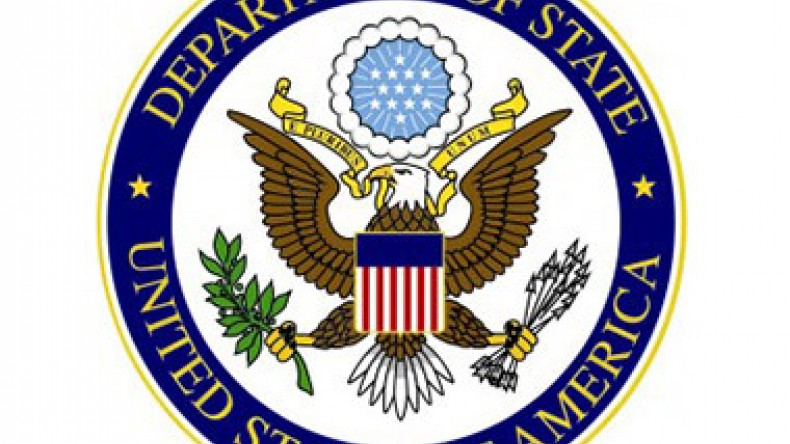
State Dept. outlines humanitarian response to Syria conflict
The U.S. Department of State, in response to concerns raised by the Armenian National Committee of America and a broad cross-section of Armenian American civic and church leaders, has stressed the urgency of ongoing U.S. diplomatic initiatives to remind all sides in Syria of their obligations under international law to protect civilians and to allow humanitarian organizations safe access to all people in need, Asbarez reported.
The Department’s letter comes following a July 17th U.S. government briefing on Syria humanitarian assistance efforts hosted by the State Department and U.S. Agency for International Development (USAID) for representatives of Armenian-American civic, church, and charitable organizations from across the United States. The letter to the ANCA underscores the importance that the United States attaches to ensuring regular medical and humanitarian access to Aleppo, and notes the life-saving U.S. contributions to meeting basic needs for those in host countries, including Armenia and Lebanon.
The full array of urgent humanitarian issues of concern to Armenian-Americans has consistently been raised by community leaders, including:
1. Ensuring the balanced and needs-based distribution of U.S. humanitarian aid to all areas of Syria, including those like Aleppo with large Armenian and other Christian populations;
2. Preventing humanitarian blockades of civilian populations, such as those creating crises in Aleppo;
3. Providing additional assistance to the Armenian government and NGO’s supporting and helping to settle Syrians who have fled to Armenia, and
4. Assisting the Armenian Church and charitable groups in Lebanon as they support the very considerable humanitarian needs of refugees from Syria.
In his August 5 letter to the ANCA, State Department Director of the Office of Europe, Central Asia and Americas, Bureau of Population, Refugees, and Migration for John Underriner referenced community concerns about getting vital humanitarian aid to the affected communities in Syria and the devastating effects of a recent blockade of assistance to Aleppo. “We recognize the critical need to ensure regular medical and humanitarian access to those who remain in Aleppo and for all displaced and conflict-affected people in Syria,” noted Underriner. “Humanitarian workers are risking their lives to provide life-saving assistance to those suffering and have worked tirelessly with contacts on all of the conflict to attempt to negotiate humanitarian pauses to allow aid delivery. We have reminded all sides to the conflict of their obligations under international humanitarian law to protect civilians, and urge them to allow humanitarian organizations safe access to all people in need.”
The full text of Underriner’s letter is provided below. Since issuing the letter, President Obama announced an additional $185 million in assistance to those affected by the Syrian crisis, bringing to $1 billion the total U.S. assistance commitment to date.
The Armenian American community, along with Armenian communities around the world, has undertaken far-reaching and life-saving humanitarian efforts, through the Armenian Apostolic, Catholic, and Evangelical churches, Syrian Armenian Relief Fund, Armenian Relief Society, Armenian General Benevolent Union and other avenues. The Armenian National Committee of America (ANCA) has undertaken a grassroots effort to educate Congressional legislators about the plight of Armenians and other affected minorities in Syria and urged Congress to provide relief and resettlement support for at-risk Armenians and other Christian populations in Syria and throughout the Middle East as part of the FY 2014 foreign aid bill.
Text of State Department Letter to ANCA Regarding U.S. Humanitarian Assistance to Those Affected by the Syrian Crisis
Dear Mr. Hamparian,
Thank you for your July 24 letter outlining the Armenian National Committee of America’s concerns regarding the humanitarian situation resulting from the crisis in Syria. We share your concern and appreciate your community’s willingness to raise awareness and mobilize resources to provide relief and humanitarian assistance to Syrian Armenians affected by violence in Syria and throughout the region.
The U.S. government is providing funding to the United Nations, the International Committee of the Red Cross, and non-governmental organizations to meet the humanitarian needs of all those affected by the current crisis. These agencies are a key part of the international humanitarian system, governed by humanitarian principles, which brings technical expertise and operational capacity to respond to a large-scale crisis such as this. The United States is providing nearly $815 million in humanitarian assistance to date to support those affected by the Syria crisis. Our contributions provide life-saving emergency assistance to meet basic humanitarian needs, such as shelter, water, sanitation, and health both inside Syria and in host countries, including Armenia and Lebanon.
As you highlight in your letter, humanitarian access inside Syria has been one of the greatest challenges to organizations responding on the ground. While humanitarian partners have been able to provide food and medical treatment to some of those affected, other areas remain inaccessible to humanitarian organizations. We recognize the critical need to ensure regular medical and humanitarian access to those who remain in Aleppo and for all displaced and conflict-affected people in Syria. Humanitarian workers are risking their lives to provide life-saving assistance to those suffering and have worked tirelessly with contacts on all of the conflict to attempt to negotiate humanitarian pauses to allow aid delivery. We have reminded all sides to the conflict of their obligations under international humanitarian law to protect civilians, and urge them to allow humanitarian organizations safe access to all people in need.
The United States will continue to encourage other international donors to provide assistance through the UN humanitarian appeals inside Syria and in the region, and will continue to partner with those organizations inside Syria working to access those most in need in all fourteen governorates.
We hope this information is helpful to you. Please do not hesitate to contact us if we can be of further assistance on this or any other matter.
Sincerely,
John Underriner
Director, Office of Europe, Central Asia and Americas, Bureau of Population, Refugees, and Migration, U.S. Department of State
Newsfeed
Videos






























